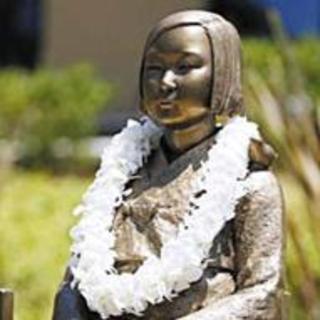
【新闻】Asian communities to unveil comfort women statue in Sydney
2014-02-21 02'41''
主播: NEWSPlus Radio
999 60
介绍:
Chinese and Korean communities in Australia are planning to erect a statue to commemorate the plight of so-called comfort women during World War II.
Our Australian correspondent Wang Xiao has more.
Reporter
Japanese Prime Minister Shinzo Abe visited the Yasukuni Shrine last December, where the tablets of 14 Class A Criminals of War of World War II are kept.
Abe's actions have been met with strong indignation from Chinese and Korean people living in Australia.
Recently, these communities held a joint meeting and set up an "Anti Japanese war crimes Alliance" to protest the Japanese prime minister's behavior.
Yang Dongdong, coordinator of Chinese communities in Australia, the group has several demands.
"First, we ask the Australian governments at all levels take a stand on Shinzo Abe's visit to the Yasukuni Shrine; second, the issue of comfort women, and third, the application of the original files about the Nanking Massacre for the list of world heritage. We urge Japan to apologize to its victims in neighboring countries."
Along with the open letter, the Chinese and Korean communities are going to erect a statue honoring comfort women, a euphemism for the sex slaves conscripted into Japanese military brothels during World War II.
Sang Doo Ok, leader of the Korean community, says it aims to keep people focused on a history that should not be forgotten.
Over 200 thousand women of different nationalities, including Korean, Chinese and Philippine origin, were forced into sex slavery and human trafficking by the Japanese military.
The prostitution corps involved women from across the globe, with many from occupied countries.
The "comfort stations" also involved a small number of women from Holland and Australia. Mr Ok says the statue presents true history to Chinese and Korean migrants as well as local Australians.
Nearly 700 thousand Chinese migrants and 150-thousand Korean descendants are living in Australia, and in Sydney there are 450 thousand and 100 thousand respectively.
Most people in these communities have signed the open letter, and have agreed to cooperate long-term against the revival of militarism by Japanese right-wing forces.
大家还在听

